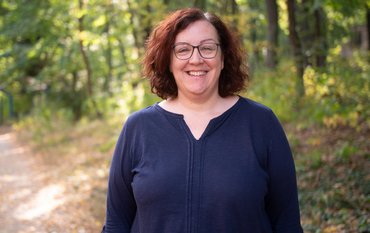As part of the CAWa-Green project (Central Asian Water), which is coordinated by the GFZ German Research Centre for Geosciences, the latest installment of the Tashkent Water Security Lectures (TWSL), the sixth in the series, took place at the end of October. It was held in person at the National Research University “Tashkent Institute of Irrigation and Agricultural Mechanization Engineers institute” (TIIAME), Uzbekistan. The event focused on the theme of “Decision Making Support to Improve Water Security Under Climate Change in Central Asia” – with presentations by eight international experts.
Over 80 participants from the scientific community and decision-makers from Central Asia attended this event. They were welcomed by Prof Baxodir Mirzayev, Rector of TIIAME, and online by Dr Oliver Bens, Head of Operational Management in the GFZ Executive Directorate and Co-Director of the Central Asian Institute of Applied Geosciences (CAIAG) in Kyrgyzstan, as well as by Alice Wolken, representative of the German Embassy in Tashkent, and by Azim Nazarov, First Deputy Minister of the Ministry of Water Resources of Uzbekistan.
Background: The CAWa-Green project
Water is of crucial importance for social and economic stability in Central Asia. However, water is becoming increasingly scarce in the region, partly due to the negative effects of climate change. In times of increasing demand for water resources and decreasing water supplies, science-based support can be helpful in decision-making to improve water security in the region.
In the CAWa-Green project led by the GFZ German Research Centre for Geosciences, leading German and Central Asian geoscientific research institutions have joined forces with partners from Central Asian universities and state institutions to tackle the challenges surrounding water supply in Central Asia.
Presentations on various aspects of water security in Central Asia
The main segment of the “Tashkent Water Security Lectures“ featured eight insightful talks that shed light on various aspects of water security in Uzbekistan and Central Asia as a whole. These talks delved into a wide array of issues, ranging from the monitoring of water resources and their availability to social aspects such as farmers' readiness to adopt sustainable practices. A detailed list of presenters and their respective topics can be found in the attached program on the cawa-project.net events page.
Panel discussion at the interface between science and politics
The event concluded with a lively panel discussion moderated by Dr. Abror Gafurov, scientist in GFZ-Section 4.4 Hydrology and coordinator of the CAWa-Green-Project. The panelists included Bakhtiyor Pulatov, a representative from the Ministry of Ecology, Environmental Protection, and Climate Change in Uzbekistan; Caroline Milow from Deutsche Gesellschaft für Internationale Zusammenarbeit (GIZ) GmbH, Tashkent; Dilorom Fayziyeva from the Legislative Chamber of the “Oliy Majlis” (Parliament) in Uzbekistan; and Prof. Iskandar Abdullaev, a Guest Professor at the Justus Liebig University Giessen, within the framework of the SDGnexus Network Project in Germany.
During the panel discussion, Bakhtiyor Pulatov elaborated on the bottom-up approach that the Ministry of Ecology, Environmental Protection, and Climate Change intends to implement in Uzbekistan. Their strategy primarily focuses on initiatives related to clean energy, recycling, and sustainability.
Dilorom Fayziyeva shared valuable insights into the ongoing and future activities of the Legislative Chamber of the “Oliy Majlis” concerning the topic of water security and climate change. She also emphasized the importance of scientific knowledge in policy making in the field of climate impact on water resources and called for more exchange between scientific community and decision-making level.
Caroline Milow, in her discussion, highlighted the challenges in bridging the gap between scientific research findings and their practical implementation in policy-making processes.
Iskandar Abdullaev shared his valuable experience, as a scientist and at the managerial level, in bringing scientists and policy makers closer together.
Finally, esteemed panelists engaged in a stimulating discussion, contributing significantly to the event's success. Next edition of the Tashkent Water Security Lectures
The next edition of the Tashkent Water Security Lectures will be communicated in a timely manner. Interested participants and attendees are encouraged to stay updated by visiting the event page at cawa-project.netand other platforms associated with the Green Central Asia project.
The CAWa-Green Project
Since 2020, the CAWa-Green project is funded by the German Federal Foreign Office as part of the “Green Central Asia Initiative”. It intends to contribute to a sound scientific and a reliable regional data basis for the development of sustainable water management strategies in Central Asia.
More information can be found on the CAWa-Green Website:
https://www.cawa-project.net/welcome-to-the-cawa-green-project


![[Translate to English:] Group picture of the participants](/fileadmin/_processed_/9/4/csm_20231108_CAWa-Workshop-Tashkent_Gruppenbild_875793c138.jpeg)
![[Translate to English:] Welcoming the participants](/fileadmin/_processed_/1/a/csm_20231108_CAWa-Workshop-Tashkent_Begruessung_eaaeca204e.jpeg)










![[Translate to English:] [Translate to English:] Abror Gafurov von dem Schriftzug "Welcome to Azerbaijan" und den UN und COP Logos](/fileadmin/_processed_/2/5/csm_2024_11_Baku_COP29_Abror_Gafurov_1042faec82.jpeg)


![[Translate to English:] Martin Herold standing in front of the library on the Telegrafenberg](/fileadmin/_processed_/c/d/csm_Martin_Herold_d385ee4dd9.jpeg)
![[Translate to English:] Many people are listening to a presentation in the GFZ lecture hall.](/fileadmin/_processed_/c/a/csm_1_Bild1_hell_b9c0e9f5ed.jpeg)






![[Translate to English:] Both scientists sitting on stools in front of a wall of books in the Telegrafenberg library](/fileadmin/_processed_/6/6/csm_Buiter_Castell_DORA_4_e87cb1ea18.jpeg)
![[Translate to English:] Gruppenbild mit 4 Personen](/fileadmin/_processed_/8/d/csm_20241017_GFZ-Emmerman-Medal-005_web_reinhardtundsommer_21a414fa4a.jpeg)






![[Translate to English:] Ice landscape with five red tents](/fileadmin/_processed_/8/9/csm_Zeltlager_auf_dem_Eis_Urheberin_Jenine_McCutcheon_5ced2d523b.jpeg)


